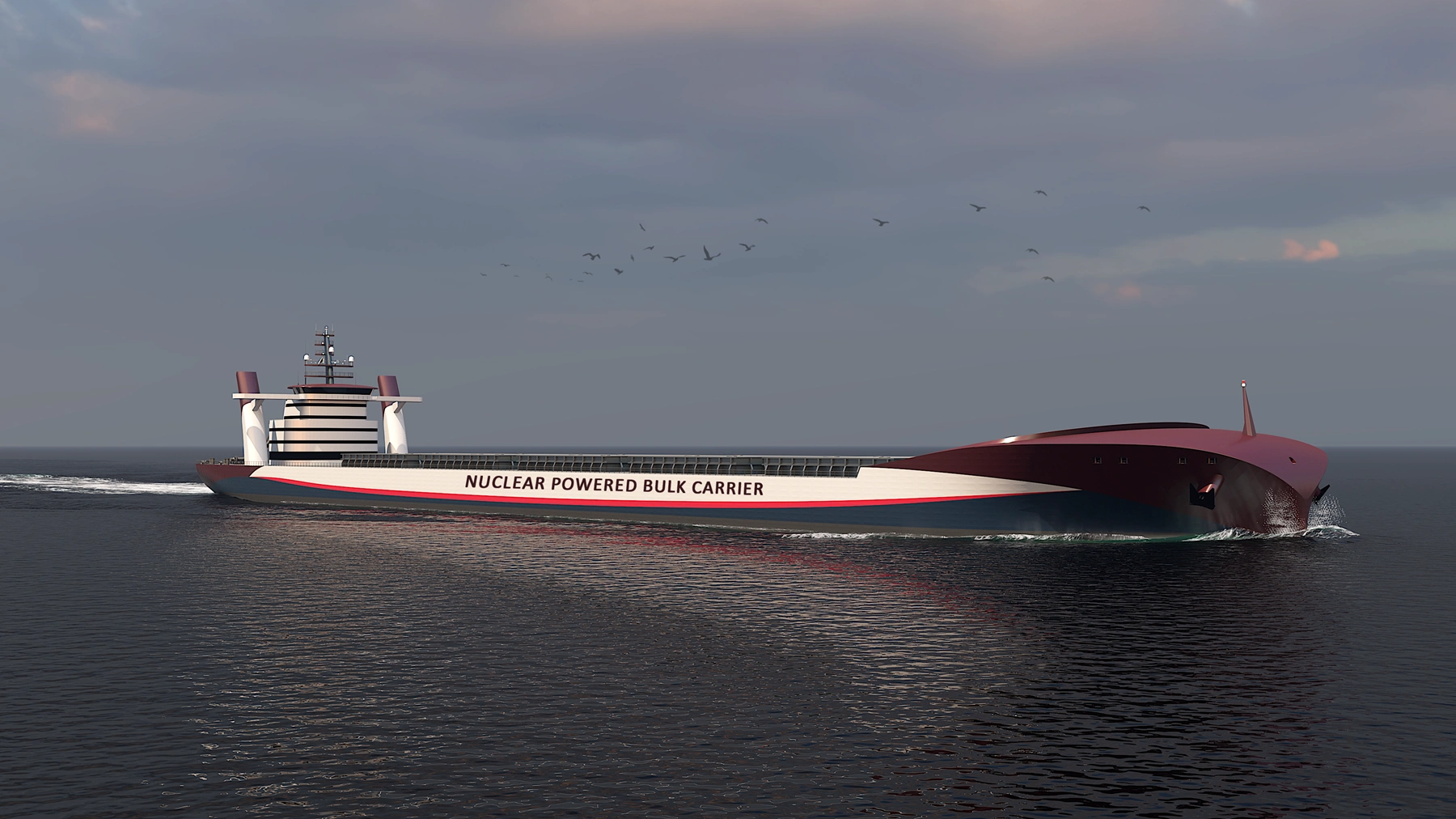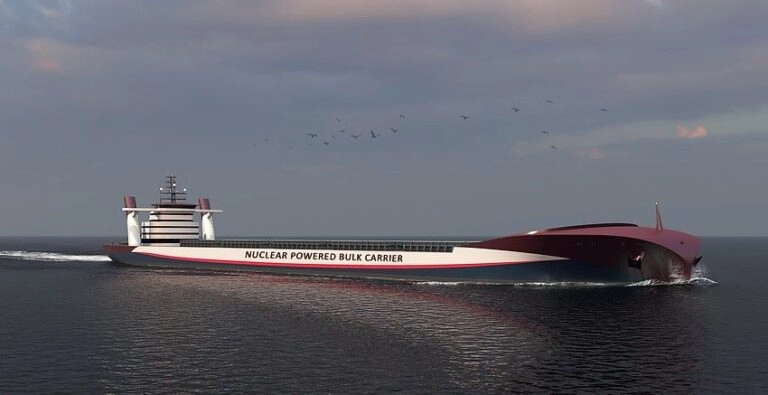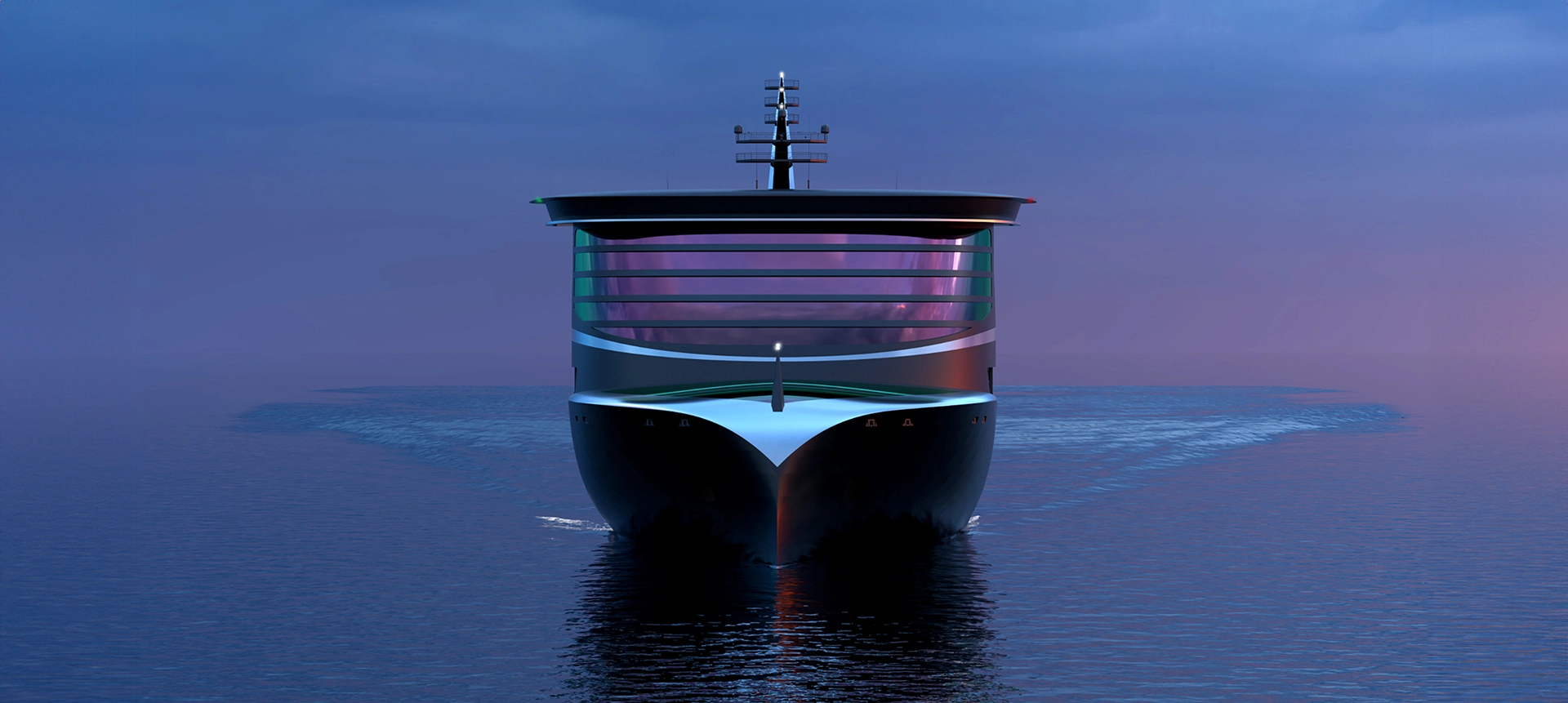Nuclear energy
Nuclear propulsion has the potential to become one of the main alternatives to achieve sustainable marine shipping and reduce GHG emissions. While it has a high capital expenditure compared to conventional marine propulsion, if applied, C-Job predicts that it could be cost-effective to shipowners within five to fifteen years.
Through our research, we have found that large, ocean-going vessels are likely to be the best candidates for nuclear propulsion, and they will benefit from a 100% reduction of tank-to-propeller GHG emissions.
While nuclear technology has not been widely considered as a viable option to date, it has also seen interesting developments recently, such as high temperature gas reactors (HTGRs) and molten salt reactors (MSRs). These help to demonstrate that nuclear technology has serious maritime potential, which will increase as reactor technology and regulations are further developed. C-Job continues to research nuclear energy and its design implications for the maritime industry.
Discover more

Nuclear study for a bulk carrier


Nuclear power could pave the way for bulkers to sail longer, faster, and cheaper, study finds

Nuclear-powered commercial vessel
More about C-Job
Our R&D work has contributed to a ripple effect, as the impact of our vessel designs and technical solutions continues to spread. Discover how we are empowering clients to build better ships, as we propel the maritime industry towards a more sustainable future.